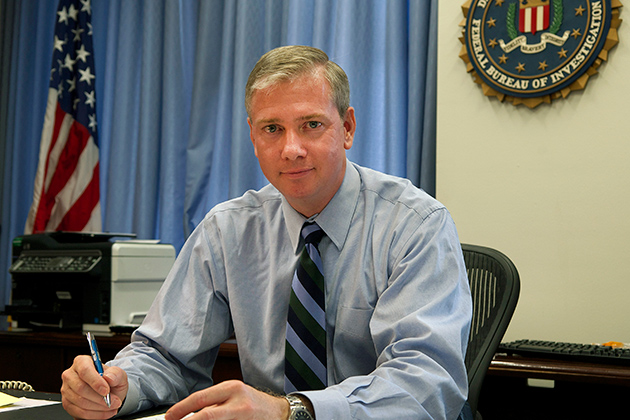He called himself Master Splyntr, one of the most respected members of a large group of cyber criminals who bought and sold stolen financial information such as credit card data and user names and passwords.
What the group did not know was that Master Splyntr was an undercover FBI agent who had infiltrated their website posing as a cyber crook. His work helped the FBI take down a cyber operation that resulted in 56 arrests worldwide and prevented $70 million in potential losses.
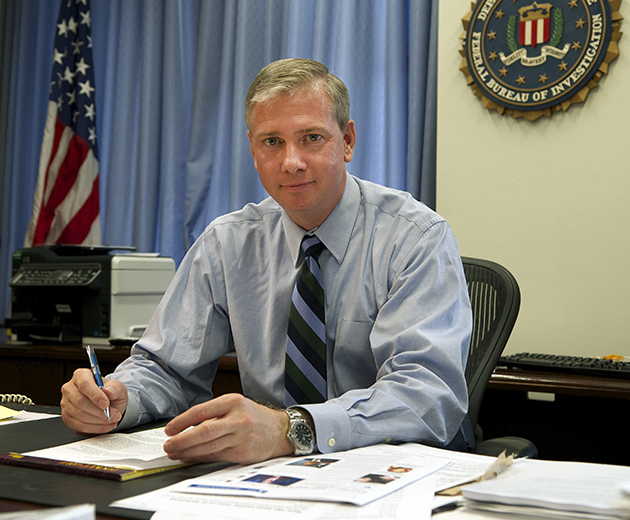
This scenario might have come from the pages of a Tom Clancy novel, but it is actually a real-life example of the high-tech operations that cross the desk of Jim Trainor ’93 MPA, deputy assistant director of the Cyber Division of the FBI. The Cyber Division leads the national effort to investigate high-tech crimes – such as cyber-based terrorism, espionage, computer intrusions, identity theft, and major cyber fraud – and pursue cyber-crime fugitives.
Trainor’s FBI work is as intriguing as it is demanding. “As technology changes, criminal actions change,” he notes. “We investigate criminal and national security cyber threats. Our work is global in scale, fast-moving, and requires a partnership with federal, state, and local agencies as well as the private sector. It involves extensive sharing of information to protect the country.”
His typical day involves morning briefings to discuss new incidents and investigations, followed by meetings with other leaders within the bureau and with other agencies to collaborate and discuss long-term strategies. He often spends 12 hours a day at his desk.
Strong foundation
Trainor was drawn at an early age to a career in public service. He grew up in a family of five children and attended public schools in Worcester, Mass., “an inner-city environment,” he says. “My parents stressed that the key to success in life is a good education. Knowing where I came from and trying to make things better are what drove me.”
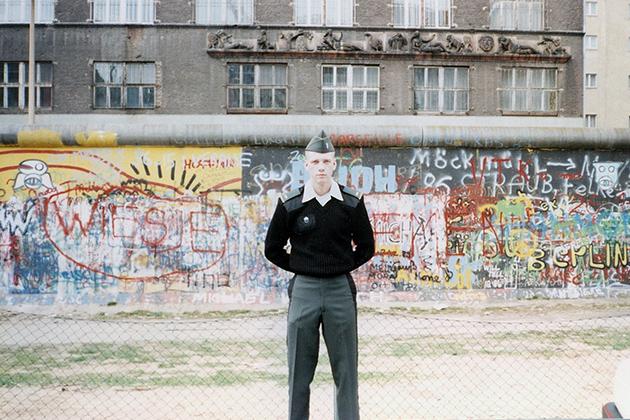

Trainor earned his bachelor’s degree in political science from Assumption College in Massachusetts on an ROTC scholarship. He served in the U.S. Army as a military intelligence officer in Germany from 1988 to 1991. “I was there during the fall of the Berlin Wall in 1989, and I actually got a piece of the wall,” he says. “It was a very historic time to live in Germany, and as a young man, it was a great opportunity.”
On his return to the U.S., Trainor worked at the Office of Fiscal Analysis for the Connecticut General Assembly while pursuing his master’s degree at UConn. He lived in the Goodyear dorm for two years, where he was an assistant hall director until his graduation in 1993.
After reading in a newspaper article that the FBI was hiring, Trainor sent in his resume. After undergoing an intensive interview and screening process, he became one of 600 agents hired that year from among tens of thousands of applicants. He trained for 16 weeks at the FBI Academy in Quantico, Va.
Climbing the ranks
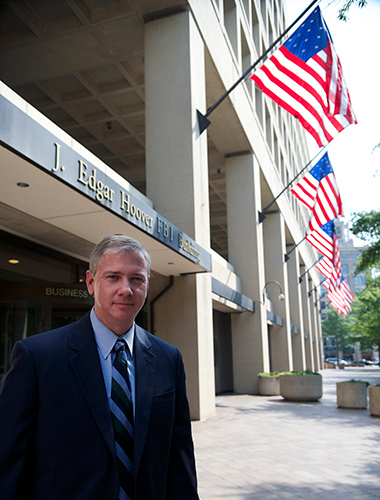
Trainor’s first assignment was to the FBI’s Chicago Division, where he worked on a variety of criminal investigative matters and then was assigned to the foreign counterintelligence squad. During that time, he received numerous commendations for outstanding performance in conducting counterintelligence operations. In 2001, he was promoted to supervisory special agent at FBI Headquarters in Washington, D.C., where he oversaw espionage investigations. He moved to the New Haven Division in 2003, where, as the supervisor for the foreign counterintelligence squad, he was responsible for all national security investigations conducted in Connecticut.
In 2007, he was named assistant special agent in charge of the Boston Division, responsible for intelligence operations in New Hampshire, Maine, Massachusetts, and Rhode Island. Three years later, he was promoted to special agent in charge of the Intelligence Division in New York, where he oversaw 350 analysts, agents, and language specialists, before being promoted in June 2013 to his current position.
“The FBI’s focus was expanded after the 9/11 terrorist attacks,” Trainor says. “The idea now is to look at the intelligence we are collecting in order to prevent a terrorist attack rather than simply investigate one. Our use of technology such as analytical tools and databases has increased dramatically, and our whole focus has evolved. After 9/11, 2,000 agents went into national security programs.”
A rewarding career
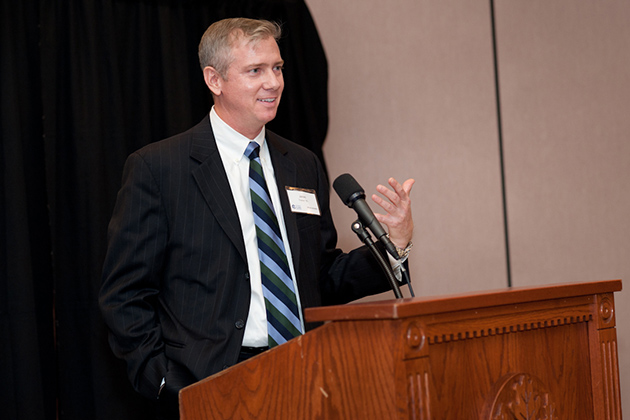
Trainor has great admiration for the technical expertise of the analysts and agents in his division and is fascinated by the advances he has witnessed in his career. When he is not working, he likes to bicycle around Washington, and is looking forward to college visits with his 14-year-old son, a sophomore in high school. “UConn is on his list of schools,” he notes.
The long days and frequent moves around the country have required dedication and sacrifice, but the rewards have been fulfilling. “I wanted to try to make the country better,” says Trainor. “For me, it’s been a very meaningful and rewarding career. I’ve had the opportunity to experience the world and contribute to society. My philosophy is to leave the world a better place than what I inherited.”
